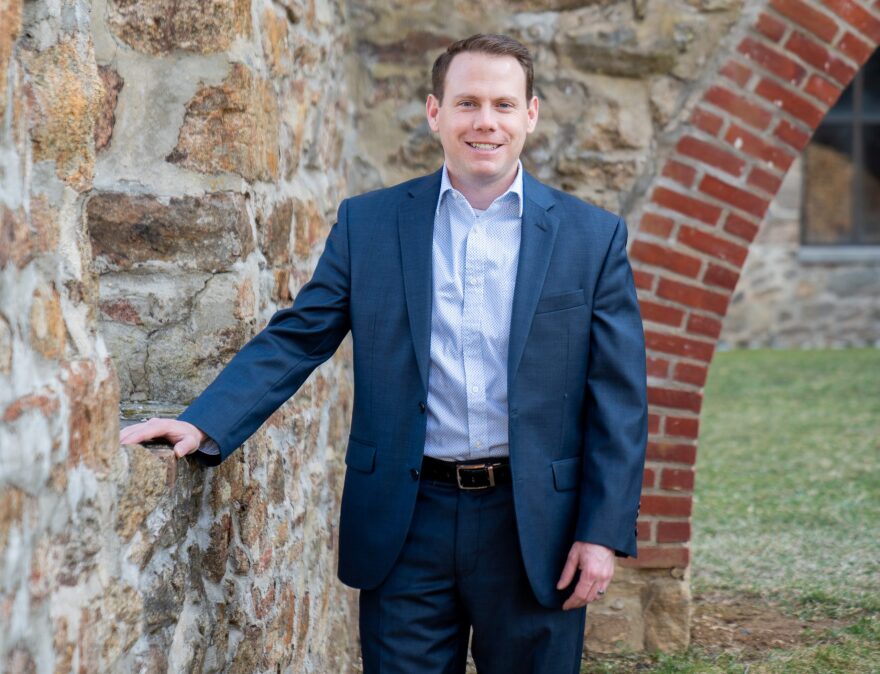UPPER MACUNGIE TWP., Pa. - Just weeks before he was scheduled to be sworn in as a state senator, Republican Jarrett Coleman reversed course and resigned from the Parkland School Board.
- State Senator-elect Jarrett Coleman, R-Lehigh/Bucks, opted to resign from the Parkland School Board
- Most Pennsylvania elected officials can't hold two offices at once, but state lawmakers can legally serve on their local school boards
- Good government advocates say holding two offices creates a potential conflict of interest
Coleman originally planned to hold both offices simultaneously, but in a statement last month announced he was changing course.
Constituents of the 16th District, which covers most of Lehigh County and the northern half of Bucks County, would be best served if he limited himself to the General Assembly, Coleman said.
“It has been an honor to serve the families and taxpayers in the Parkland School District while a member of the School Board," Coleman said in a news release. "I will bring the same energy and determination to the Pennsylvania Senate."
But the fact that holding both offices was even an option might catch Pennsylvanians by surprise. State law prevents county and municipal officials from holding other offices.
For example, Northampton County Councilman Ron Angle and Wilson Borough Councilman Tony Verenna won campaigns for their local school boards in 2009. When they tried to hold both offices, then-Northampton County District Attorney John Morganelli filed lawsuits against the men, alleging they were each breaking state law.
Verenna ultimately resigned from borough council and Angle quit the school board.
The Pennsylvania Constitution specifically bars state senators and representatives from holding other elected offices that provide them pay, benefits or perks.
But school board positions appear to skirt these provisions. While board members can set tax rates, guide school policy and hire or fire district leadership, they are not compensated for their service.
Potential for conflicts
Patrick Christmas, policy director at the non-partisan good government organization Committee of Seventy, said holding two offices may be legal, but it's ill-advised. It would be difficult at best to serve their own constituents, Christmas said.
"Is it possible that a conflict amongst the districts could come up? Maybe, maybe not, but I think it's something an incoming lawmaker should think of," Christmas said. "How can you serve two different electorates at the same time?"
Coleman, who defeated longtime incumbent Pat Browne in the Republican primary, was not available for an interview for this article.
His new state Senate district includes nine school districts. If the state senator was simultaneously serving on one of them, the eight would have fair grounds to question how well their interests were being represented in Harrisburg compared with the other one, Christmas said.
The issue of politicians holding multiple elected offices is a rare one in Pennsylvania, Christmas said. The Committee of Seventy does not have a set policy on state lawmakers serving on their school boards, but it would recommend the practice be avoided, he said.
It's unusual, but not unheard of.
Rep. Mike Jones, R-York, was about a year into his term as a Dallastown School Board director when he was elected to the state House in 2018. He ultimately held both positions for about nine months before resigning from the school board in September 2019.
In an interview last month, Jones said he felt an obligation to serve in both roles. The district was working on expensive capital projects and selecting a new superintendent, he said, and it would have been a poor time to leave the school board short-handed.
But within a few months, he quickly determined it was too much. He said that while he was used to busy schedules, he felt stretched thin between his duties in the statehouse and on the school board.
"I didn't really feel I was being as effective as a school board member," he said.
Jones said he was investing most of his attention in learning the ins and outs of being a state representative. It made attending the school district's weekly meetings challenging. And it would have been downright impossible if he served in a more distant district, such as Erie, instead of 45 minutes away, he said.
He was also aware of potential conflicts of interest. Jones said his House district contained parts of five school districts. While most state laws would equally harm or help his districts, there are scenarios in which the results would vary among those districts.
Debates over school funding is a major one. Pennsylvania uses two pots of money to fund public schools — a traditional tranche based on property taxes, and a second known as the Fair Funding Formula that provides supplemental funding to poorer districts.
Jones didn't vote on school funding during his time in both offices but acknowledged it was a potential conflict.
"If they all benefited from the one formula versus the other, it's kind of a moot point," he said. "But in my case, I had a couple of more suburban-type districts that were hurt by the Fair Funding Formula and a couple of rural districts that benefited from it."
Conflicts over school funding could have been a thorn in Coleman's side had he not resigned. His diverse state Senate district includes rural school districts such as Northwestern Lehigh, wealthy suburbs such as Parkland, and urban Allentown, which relies on millions of dollars from the state beyond standard property taxes.
School funding is a subject near and dear to Coleman. He made it one of the main focuses of his campaign, saying state funds should be tied to students instead of their school districts. Similar language is used by proponents of school vouchers, which would provide state funding for private and religious schools.
The Parkland School Board will hold a special meeting on Tuesday, Jan. 3, to consider appointing Robert Bold, a former board member, to fill Coleman's unexpired term.



